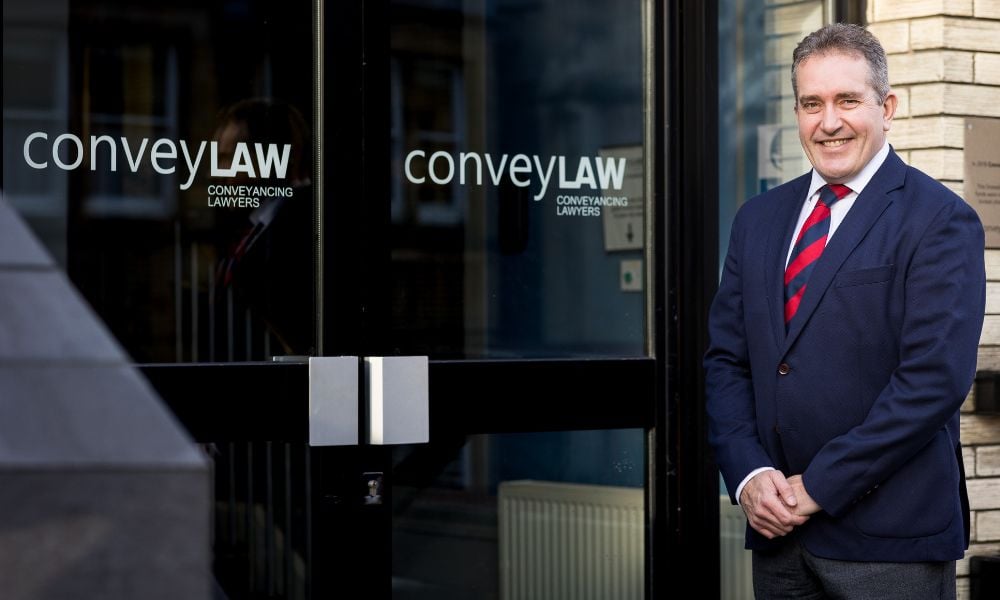But relations between conveyancers and estate agents are improving

While relationships have improved between conveyancers and estate agents since the pandemic days, it is the opposite among clients who are often less understanding and more demanding, according to the chairman of the Conveyancing Foundation.
Speaking at the latest ‘Be Kind We Care’ webinar to mark Stress Awareness Month, Lloyd Davies (pictured), also the managing director of Convey Law, said clients’ behaviour during the pandemic was quite good in many respects.
“They were quite patient because they understood the problems we had. I think less so this year,” Davies noted.
“It just seems that they are now very, very demanding which is putting a lot of pressure on our teams. That is fuelled by the very buoyant property market. People are very impatient now because they know that house prices are going up, and they may get gazumped so there is very little tolerance in the market which is putting a lot of pressure on all conveyancers.”
Prompted by growing reports of aggressive professional behaviour in the property, conveyancing and legal sectors, the ‘Be Kind We Care’ campaign was launched by the Conveyancing Foundation during the pandemic.
Davies said that the campaign had encouraged many working in those industries to consider and manage their dealings with each other to ensure more kindness.
“I believe that relationships with others in the property world like estate agents and introducers of business have become a lot better. They are not quite as aggressive and are far more understanding of our predicament as conveyancers which is a good thing,” he remarked.
Davies also said conveyancing was still very busy in the aftermath of the pandemic and living through a period of “peaks and troughs.”
“We are in a little bit of a situation in the conveyancing world. The industry has had a very busy and difficult time with people working from home, but also the stresses within our environments with the SDLT deadlines which gave us a false set of waves throughout last year leading up to September was hugely stressful,” he explained.
Read more: Moneypenny marks World Mental Health Day with top tips.
Meanwhile, webinar host, LawCare chief executive Elizabeth Rimmer, said managing the expectations of clients whose transaction was probably “the biggest thing going on in their lives” while conveyancers might be dealing with 100 transactions was key.
“An understanding of why people might be behaving in a certain way is vital,” she stressed.
Jason Bull, a mentor at Agents Together and chief operating officer at easyproperty.com, said estate agents, solicitors and conveyancers had “a very similar job dealing with people with high stress and high anxiety levels which extends into our staff.” He said tolerance in dealing with each other was all down to education.
“I am pleased to hear that estate agents are becoming more tolerant. Sometimes, problems can arise when agents don’t understand where their job ends and where the conveyancer’s job begins. I have seen agents interfering with a conveyancer’s job and that just adds extra time, extra complaints and layers of conflict and yet we share the same problems and by talking to each other, we can solve an awful lot of them,” Bull shared.
He added his own agency had looked at ways of reducing stress and had now made a pledge to ensure staff only sent emails during working hours.
“Emails sent out of working hours bleed into someone’s time and bleeds into being anxious after hours,” he commented.
Hannah Beko, a partner at Gunnercooke LLP and a mental health trainer, said that while there was more discussion about mental health issues and more resources than ever before, what is out there is not reducing numbers.
She shared tips on stress and burnout, emphasising the importance of keeping an eye on colleagues and on changes in behaviour in them and in ourselves.
“There’s a lot of positives in terms of discussion and support, but we are still at the tip of the iceberg, and we need to be more alive to that,” Beko concluded.



